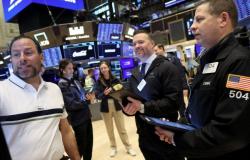If you see before and after images of this Harvard genetics professor of his process, he looks younger in the after. But the important thing is not the outside, where you can rejuvenate relatively, but in the body, since thanks to lifestyle, especially avoiding 5 foods, has delayed his biological age 30 years.
His name is David Sinclair, a true anti-aging guru, and in this video he explains his experience and how he did it. Without a doubt, his teachings and example are key and reliable, because we are talking about one of the leading experts in aging and epigenetics. This Australian biologist is a professor of genetics at Harvard Medical School and co-director of the Paul F. Glenn Center for the Biology of Aging Research.
What better way to investigate than with yourself, testing your impressions, processes and results. Through changes in his lifestyle and diet, Dr. Sinclair has managed to stay younger than his years suggest. How has he done it? You can do the same without having to be a millionaire or have strange habits.
The simple eating habit for longevity
Before what to eat or not to eat, how to do it. A fundamental change that Dr. Sinclair made in his diet is reduce meal frequency. Instead of eating constantly throughout the day, opt for a period of about six hours in which you consume your meals. This means she often skips breakfast and focuses on a healthy, vegan meal for dinner.
The science behind this time-restricted eating suggests that long periods without eating stimulate autophagy, a deep cleansing process in the body that helps slow aging. The famous intermittent fasting, increasingly recommended and applied.
The foods that the expert geneticist eats to be younger
David Sinclair has become, above all, a plant eater. Their diet focuses on leafy green vegetables, green tea, olive oil, and foods rich in polyphenols., which are plant compounds that indicate stress in plants and may have benefits for human health by activating cellular defenses against aging. These stress plants, like green tea, broccoli, and spinach, are an essential part of your diet.
The supplements you take daily
Dr. Sinclair takes three supplements each day. The first is the resveratrolwhich is found in red wine and has been linked to the activation of longevity genes: the second is nicotinamide mononucleotide (NMN), a form of vitamin B3 that increases levels of NAD, a molecule essential for cellular function; and the third is the metformina medication used to manage type 2 diabetes that has shown health and longevity benefits even in people without diabetes.
The foods you avoid for a biological age 30 years younger
What you don’t eat is as important or more than what you do eat. Sinclair has eliminated several foods from his diet to maintain his health and youth. These include:
Sugar and fructose, since blood sugar spikes can accelerate aging. Sugar is perhaps the biggest enemy of a long and healthy life. Dr. Sinclair emphasizes that the consumption of sugar, especially fructose, accelerates aging and increases the risk of developing chronic diseases. Reducing sugar not only improves metabolic health, but also prevents protein glycation, a process that impairs cellular function.
How do you avoid sugar? What he does is prioritize natural and unprocessed foods, using natural sweeteners such as stevia or monk fruit in moderation. Also avoid sugary drinks and processed juices.
refined carbohydrates: They are present in white bread or cookies and have a similar effect to sugar on the body. They rapidly raise blood glucose levels, causing insulin spikes and contributing to accelerated aging. Dr. Sinclair recommends limiting these carbohydrates and opting for whole grain, high-fiber options. Opt for whole grains such as quinoa, oats or brown rice and include complex carbohydrates such as legumes and vegetables in your diet.
Has significantly reduced his consumption of meat and dairy products, focusing on plant-based foods. Alcohol is also almost entirely out of your regime, except for wine, as it can have negative long-term health effects.
As alternatives to animal protein, include more legumes, nuts and seeds in your diet. Experiment with plant protein sources like tofu, tempeh, and quinoa.
Ultra-processed foods and all those that contain additives, preservatives and artificial flavors that can negatively affect health and accelerate aging. Dr. Sinclair advises avoiding these foods and prioritizing natural, minimally processed options.
To do this, read labels and avoid products with long lists of unknown ingredients. Opt for fresh foods and homemade preparations.
Excessive alcohol consumption: Although red wine contains resveratrol, a compound beneficial to health, excessive alcohol consumption is harmful, and even other experts are in favor of total abstinence for greater longevity. David Sinclair simply recommends moderation in alcohol consumption and, if possible, opting for non-alcoholic drinks.
Therefore, if you choose to drink, opt for wines high in resveratrol such as Pinot Noir and explore healthy alternatives such as herbal teas and fruit-infused water.
Exercise rule for longevity
Aside from the 5 foods to avoid, Sinclair emphasizes the importance of exercise in your lifestyle. His rule is simple: exercise three times a week, push your body to the limit until you are out of breath for at least 10 minutes. This stress on the body translates into notable health and longevity benefits, such as reducing disease rates by 30 percent or more.
You see, the approach David Sinclair has taken is rigorous, but easy and affordable to follow, to keep you young and healthy as you age. And you can apply it with confidence, since it is based on scientific research and the principles of longevity, of which he himself is a specialist and researches daily.
Tags: foods expert geneticist avoided rejuvenate





